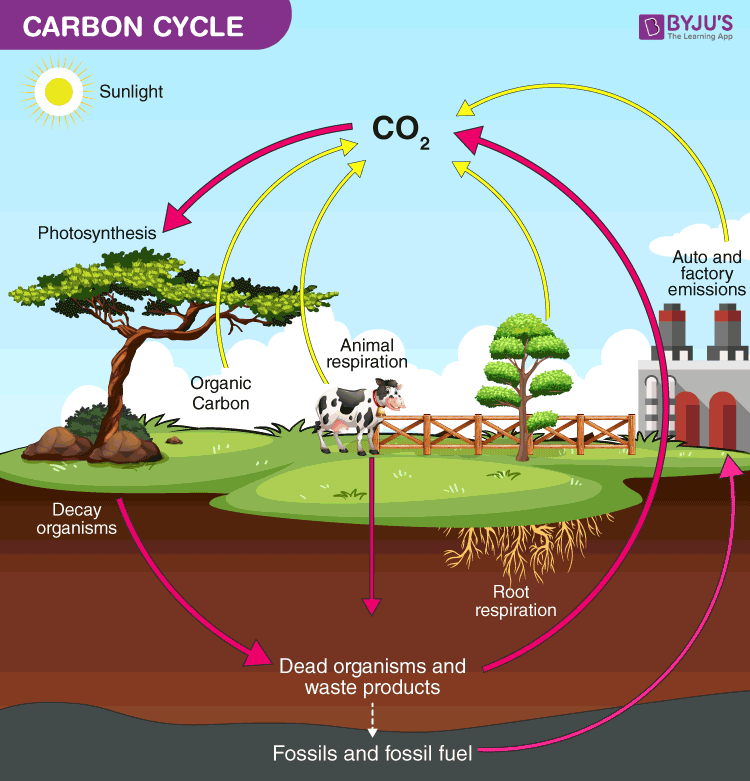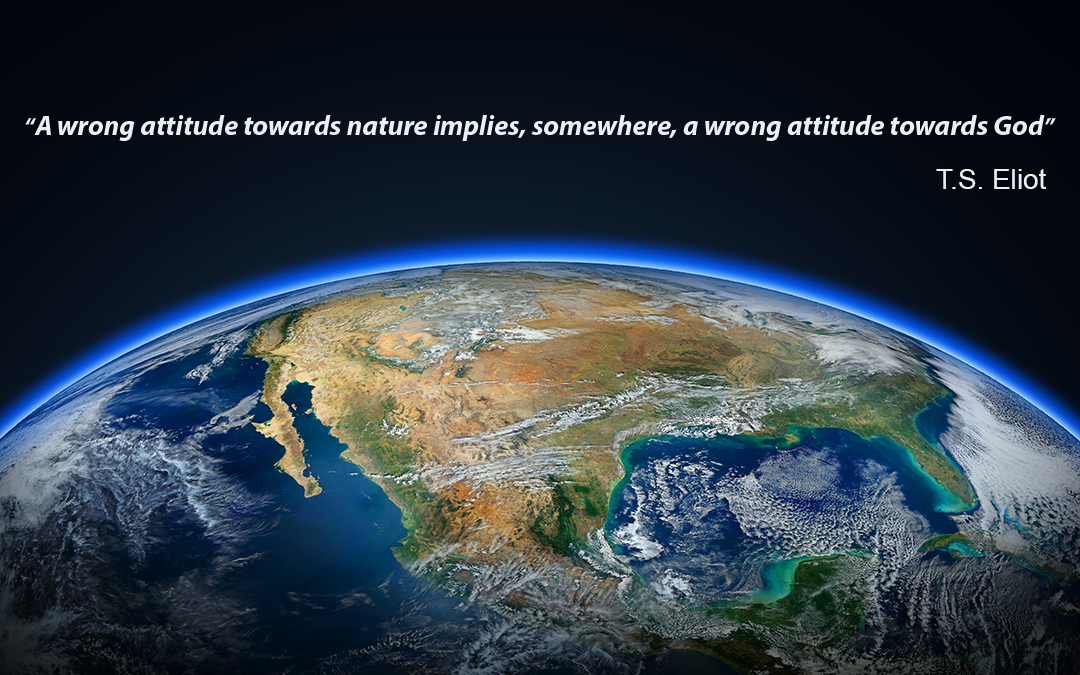For conservative Christians like myself, who sometimes have issues reconciling science with Biblical teaching, it seems like a good time to reflect on God’s climate plan, and how His design should instruct our thinking and our actions going forward.
In the book of Genesis (3:19), God told Adam that his body would return to the ground when he died, saying, “…out of it you were taken; For dust you are, And unto dust you shall return.” What many tend to overlook is that God was describing a fundamental part of the carbon cycle.
Through this miraculous process carbon, an essential component of virtually all life on earth, is continuously cycled and reused. Trees and other plants, as well as the ocean, are designed to remove carbon dioxide from the atmosphere. That carbon helps support life by being transferred to people, animals and the soil.

When we extract oil and coal from the earth and burn it in ever increasing quantities, we disturb that natural balance by releasing that stored carbon from bygone eras back into the atmosphere as carbon dioxide over much shorter time scales than would naturally occur. That upsets the carbon balance in the atmosphere, causing excess carbon dioxide to build up in the atmosphere, where it begins to trap too much of the earth’s heat.
Does it not then stand to reason that God, after designing the earth’s processes to sequester excess carbon and keep our atmosphere’s chemistry in balance, would prefer that we respect His creation and find better ways to heat our homes and power our cars than using huge amounts of oil and coal?
A refrain I sometimes hear from fellow Christians, often from those who take their cues from oil and coal interests, is “God wouldn’t have put coal and oil in the ground if he didn’t want us to use them.” That presumptuous reasoning overlooks the possibly that God might have put those hydrocarbons exactly where he wanted them to stay.
At 412 parts per million (ppm), the carbon dioxide concentration in our atmosphere is the highest in human history—driven primarily by the burning of fossil fuels. We are truly in unchartered territory, and as the latest reports from the NASA, IPCC and top climate scientists from around the globe show, the impacts are already evident and getting worse.
One no longer has to rely on climate modeling and predictions. We can all see and feel the changes for ourselves…hotter summers, heavier downpours, less snowpack, more wildfires, stronger hurricanes, the list could go on.
Globally, July 2019 was the hottest month ever recorded, with records going back 140 years. In fact, nine of the past 10 hottest Julys have occurred since 2005. This past September also tied with 2015 as the hottest September on record.
A byproduct of that warm air is more moisture in the atmosphere. January through September of 2019 was also the wettest such period (YTD) ever recorded.
These changes are taking a toll on our health, our livelihood, and our property. Moreover, it is stressing our nation’s infrastructure, affecting insurance premiums, and requiring more money for disaster assistance. That impacts our wallets and our country’s fiscal health.
By acting contrary to God’s design, we are putting at risk the very systems and processes that He put in place to sustain life.
Those who do not believe burning fossil fuels is altering our climate often peddle the notion that the earth was created on such a grand and complex scale, it is impossible for humankind to mess it up. In other words, we can do anything we want without serious consequence.
Does that sound like something God would say? To me, it sounds more like something the snake from the Garden of Eden would say.
Is there any aspect of our spiritual or physical life where our actions are without consequence? Everything we do has consequences—and the earth’s life-sustaining ecology was not designed to be immune from our actions and choices.
As Adam and Eve quickly discovered after giving into temptation, with knowledge comes responsibility.
With better understanding—often through scientific observation—of how God has designed the earth to function and support life, comes an even greater obligation to respect His design and live within it.
And as we consider the ever-mounting evidence that our actions are causing unprecedented harm to—as President Ronald Reagan liked to say—“this magical planet that God gave us,” it is a great time to reflect upon our obligation to be good stewards of His creation.
We would also do well to consider the words of conservative author and poet T.S. Eliot. He pointed out that, “Religion, as distinguished from modern paganism, implies a life in conformity with nature,” and then wisely concluded:
”A wrong attitude towards nature implies, somewhere, a wrong attitude towards God.”

